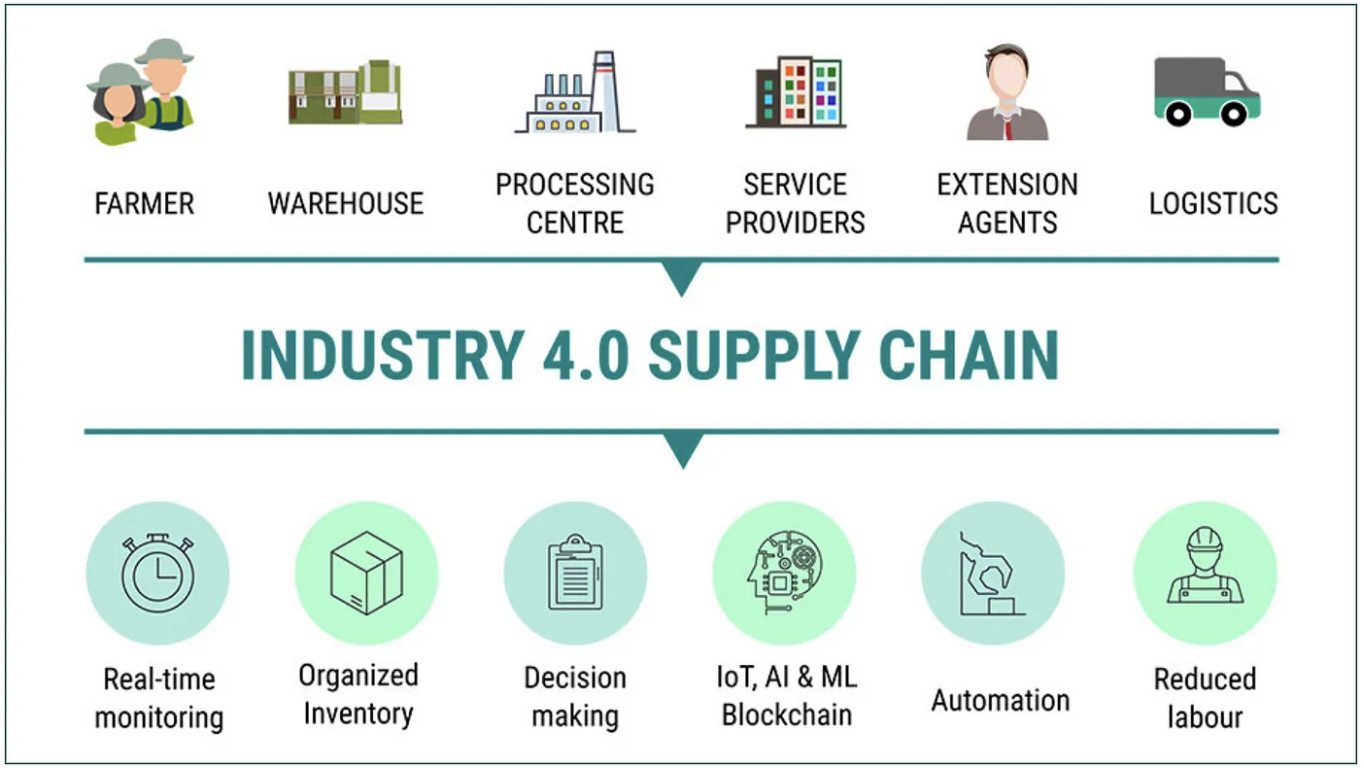In today’s economy, supply chains have become increasingly interconnected and complex, making it challenging for enterprises to ensure transparency and traceability of goods.
However, with the rise of blockchain technology, several solutions offering a decentralised and immutable ledger are revolutionising supply chain management by providing real-time visibility and trust in the movement of goods.
In this article, I’ll explore how blockchain applications can enhance supply chain traceability, enabling enterprises to track the journey of products from source to end consumer.
Blockchain for Supply Chain Traceability
Blockchain technology, at its core, is a distributed and transparent ledger that allows multiple parties to maintain a synchronized record of transactions. When applied to supply chains, blockchain provides a decentralized database where every transaction or event related to a product is recorded in a secure and immutable manner. This creates an audit trail that enables participants to track and verify the origin, movement, and authenticity of goods throughout the supply chain.
One of the primary benefits of the use of this technology in supply chain traceability is enhanced transparency. Traditionally, supply chain information is siloed amongst multiple stakeholders, leading to information gaps and potential fraud and without ever being brought to the public knowledge.
With blockchain, all relevant parties can access and contribute to a shared ledger, ensuring a consistent and transparent view of their product lifecycle. This transparency enables enterprises to identify bottlenecks, reduce fraud and optimise their operation, leading to decreasing production costs.
The food and agriculture industry is one area where blockchain-based traceability solutions have gained significant traction. By using blockchain, farmers, distributors, retailers and consumers can trace the journey of food products from the farm to the table.
This enables the identification of the source of contamination during food borne illness outbreaks, facilitating faster recalls and preventing the spread of contaminated products. Additionally, blockchain can help verify the authenticity of organic and fair-trade certifications, providing consumers with greater confidence in the products they purchase and consume.
The pharmaceutical industry also stands to benefit from blockchain-enabled supply chain traceability. Counterfeit drugs pose a significant threat to public health, and the complex nature of pharmaceutical supply chains makes it difficult to identify and prevent their entry.
By leveraging blockchain, pharmaceutical companies can track the movement of drugs at every stage, ensuring the authenticity and integrity of medications. Furthermore, blockchain can enable secure and auditable records of temperature and humidity conditions during drug transportation, ensuring the efficacy and safety of sensitive medications.
Luxury goods, such as high-end fashion and jewellery, are often targets of counterfeiting. Blockchain can provide an immutable record of the production and movement of luxury goods, enabling customers to verify the authenticity and provenance of their purchases.
By connecting blockchain with other technologies like RFID tags or unique identifiers, enterprises can create a tamper-proof record of each item’s history, deterring counterfeiters and protecting the reputation of luxury brands.
Benefits and Future Potential
The benefits of blockchain traceability extends beyond transparency and fraud prevention. It also offers enhanced efficiency, cost savings and increased trust amongst the participants of the network.
By automating and streamlining manual processes such as record-keeping, document verification and reconciliation, blockchain reduces administrative burdens and minimises errors. This increased efficiency leads not only to cost savings but also faster transaction processing.
Looking ahead, the potential applications of blockchain in supply chain are vast. As it matures and becomes more widely adopted, we can expect to see increased interoperability between different networks and the integration of emerging technologies like IoT and AI.
These advancements will enable even greater visibility and automation in supply chains, paving the way for predictive analytics, real-time inventory management, and autonomous supply chain processes.
Blockchain technology holds immense promise in revolutionising supply chain traceability. By providing transparency, security and immutability, blockchain applications enable enterprises to track the movement of goods from the source to the end consumer.
The benefits of blockchain in industries such as food and agriculture, pharmaceuticals, and luxury goods are evident, ranging from preventing food born illnesses to combating counterfeit products.
As more businesses recognize the transformative potential of blockchain, we can expect to see increased collaboration and innovation in supply chain management.
The integration of blockchain with other emerging technologies will further enhance supply chain efficiency, sustainability, and trust, setting new standards for transparency and traceability in the global marketplace.
